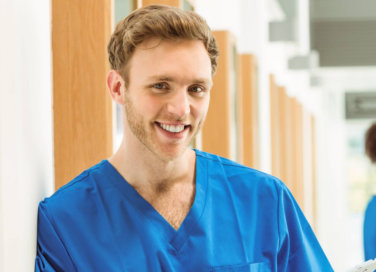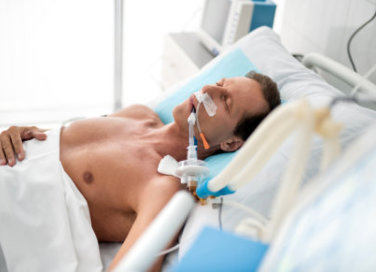Choose a Program Area:
Diagnostic Medical Sonography
Cardiovascular Sonography
Surgical Technology
Central Sterile ProcessingTechnician
Clinical Medical Assistant
Pharmacy Technician
Dental Assistant
EKG & Phlebotomy Technician
Medical Billing and Coding
Patient Care Technician
Nursing Assistant
Dialysis Technician
Upcoming Programs
Featured Programs
-

Diagnostic Medical Sonography DMS: Ultrasound
The Diagnostic Medical Sonography program at the Medical Training Institute of New York is designed to prepare students to perform diagnostic ultrasound examinations required of an entry-level general sonographer to include, but not be limited to, the abdomen, pelvis, pregnant female pelvis, and superficial structures. Students are also introduced to vascular ultrasound. The student will have the opportunity to study the anatomy, physiology, and pathophysiology of scanned organ systems, recognize the sonographic patterns of the organs, learn the protocols for a logical and thorough survey of the organs, and provide accurate and technical impressions of the interpreting physician. Upon completion of the Diagnostic Medical Sonography Program, the student will be expected to:
- Describe and utilize routine procedures performed in Diagnostic Medical Sonography
- Create high-quality diagnostic scans.
- Demonstrate proficiency and fluency in the use of medical terminology, especially those pertaining to ultrasound.
- Be skilled in the operation of ultrasound instrumentation and laboratory equipment under guidance from professional staff
- Demonstrate the ability to maintain quality control of the ultrasound equipment.
- Identify and understand important features of disease processes, including Pathophysiology, signs and symptoms, significant laboratory data, diagnostic techniques, prognosis, and treatment.
- Demonstrate a working knowledge of hospital functions in general and the ultrasound department in particular, including basic skills, emergency care, patient-technologist relationships, and professionalism.
- Be successful in a career as a Registered Diagnostic Medical Sonographer or Registered Diagnostic Cardiac Sonographer
The 1800 clock hours of Diagnostic Medical Sonography consist of 800 hours of Didactic, 400 hours of Lab, and 600 Clinical Rotation Hours.
- What Are My Career Opportunities as a Diagnostic Medical Sonographer
- Medical Terminology
- Sonographer
- Diagnostic medical sonographer
- Ultrasound technologist
- Medical Practitioner
- Clinical Coordinator
- Educator
- What Are My Career Opportunities as a Diagnostic Medical Sonographer
- Hospitals
- Physicians’ offices
- Medical and diagnostic labs
- Outpatient imaging departments
- Free-standing urgent care facilities
- Preparation for National ARDM and ARRT Certification Examinations
- American Registry of Diagnostic Medical Sonography (ARDMS)
- American Registry of Radiologic Technologists (ARRT).
- MTI of New York will prepare you for your SPI Examination by covering the following content areas:
- Clinical Safety
- Patient care
- Physical Principles
- Ultrasound Transducers
- Quality Assurance
- Protocols
- New Technologies
- MTI Provides Job Placement Assistant
Admissions Requirement: HS diploma/GED, Entrance Examination
Winter 2025 Enrollment Open
January 21, 2025
Total hours: 1800
Day, Evening, Weekend Options
Total weeks: 72-86
Hours/Weeks: 21-35
Tuition Cost: $25,000
Total Program Cost: $30,614
Certificate
-
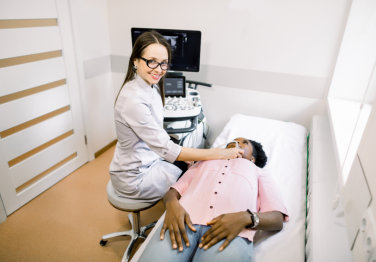
Cardiovascular Sonography CVS: Ultrasound
The Cardiovascular Sonography program at the Medical Training Institute of New York is designed to prepare students to perform echocardiographic examinations under the direction of a physician/ cardiologist. Students have the opportunity to gain both didactic knowledge and practical experience in cardiovascular science, EKG, Holter monitoring, telemetry, and echocardiography. Upon completion of the Cardiovascular Sonography program, the student will be expected to:
- Identify the anatomy and physiology of the circulatory system.
- Identify normal and abnormal spectral Doppler waveforms and flow patterns.
- Interpret the factors that influence the Doppler spectrum.
- Identify the anatomy of the veins and arteries in the lower extremities.
- Identify vascular pathology.
- Recognize the pathology, such as deep venous thrombosis, by studying scans of pathology.
- Identify the anatomy of the vessels in the upper extremities.
- Recognize pathologies such as stenosis and clot formation.
- Demonstrate basic knowledge of vascular hemodynamics.
- Demonstrate the clinical application of duplex and color flow imaging of the carotid arteries and the lower extremity and veins.
The 1800 clock hours of Cardiovascular Sonography consist of 800 hours of Didactic, 400 hours of Lab, and 600 Clinical Rotation Hours.
- What Are My Career Opportunities as a Cardiovascular Sonography
- Medical Terminology
- Sonographer
- Diagnostic medical sonographer
- Ultrasound technologist
- Medical Practitioner
- Clinical Coordinator
- Educator
- Cardiovascular Sonography can work in a variety of environments:
- Hospitals
- Physicians’ offices
- Medical and diagnostic labs
- Outpatient imaging departments
- Free-standing urgent care facilities
- Preparation for National ARDM and ARRT Certification Examinations
- American Registry of Diagnostic Medical Sonography (ARDMS)
- American Registry of Radiologic Technologists (ARRT).
- MTI of New York will prepare you for your SPI Examination by covering the following content areas:
- Clinical Safety
- Patient care
- Physical Principles
- Ultrasound Transducers
- Quality Assurance
- Protocols
- New Technologies
- MTI Provides Job Placement Assistant
Admissions Requirement: HS diploma/GED, Entrance Examination
Winter 2025 Enrollment Open
January 21, 2025
Total hours: 1800
Day, Evening, Weekend Options
Total weeks: 72-86
Hours/Weeks: 21-35
Tuition Cost: $28,600
Total Program Cost: $34,116
Certificate
Featured Programs
-

Cardiovascular Sonography CVS: Ultrasound
The Cardiovascular Sonography program at the Medical Training Institute of New York is designed to prepare students to perform echocardiographic examinations under the direction of a physician/ cardiologist. Students have the opportunity to gain both didactic knowledge and practical experience in cardiovascular science, EKG, Holter monitoring, telemetry, and echocardiography. Upon completion of the Cardiovascular Sonography program, the student will be expected to:
- Identify the anatomy and physiology of the circulatory system.
- Identify normal and abnormal spectral Doppler waveforms and flow patterns.
- Interpret the factors that influence the Doppler spectrum.
- Identify the anatomy of the veins and arteries in the lower extremities.
- Identify vascular pathology.
- Recognize the pathology, such as deep venous thrombosis, by studying scans of pathology.
- Identify the anatomy of the vessels in the upper extremities.
- Recognize pathologies such as stenosis and clot formation.
- Demonstrate basic knowledge of vascular hemodynamics.
- Demonstrate the clinical application of duplex and color flow imaging of the carotid arteries and the lower extremity and veins.
The 1800 clock hours of Cardiovascular Sonography consist of 800 hours of Didactic, 400 hours of Lab, and 600 Clinical Rotation Hours.
Admission Requirement: High school diploma/GED, Entrance Examination
- What Are My Career Opportunities as a Cardiovascular Sonography
- Medical Terminology
- Sonographer
- Diagnostic medical sonographer
- Ultrasound technologist
- Medical Practitioner
- Clinical Coordinator
- Educator
- Cardiovascular Sonography can work in a variety of environments:
- Hospitals
- Physicians’ offices
- Medical and diagnostic labs
- Outpatient imaging departments
- Free-standing urgent care facilities
- Preparation for National ARDM and ARRT Certification Examinations
- American Registry of Diagnostic Medical Sonography (ARDMS)
- American Registry of Radiologic Technologists (ARRT).
- MTI of New York will prepare you for your SPI Examination by covering the following content areas:
- Clinical Safety
- Patient care
- Physical Principles
- Ultrasound Transducers
- Quality Assurance
- Protocols
- New Technologies
- MTI Provides Job Placement Assistant
Admissions Requirement: HS diploma/GED, Entrance Examination
Winter 2025 Enrollment Open
January 21, 2025
Total hours: 1800
Day, Evening, Weekend Options
Total weeks: 72-86
Hours/Weeks: 21-35
Tuition Cost: $28,600
Total Program Cost: $34,116
Featured Programs
-
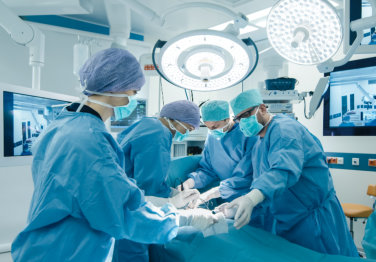
Surgical Technology
The Surgical Technology program at the Medical Training Institute of New York is designed to provide students with the cognitive (knowledge), psychomotor (skills), and affective (behavior) learning domains necessary to be employed as an entry-level surgical technologist. The AST Core Curriculum was used as a guideline to facilitate the formation of the surgical technology program curriculum, which includes an on-campus lecture component, an on-campus laboratory component, and an off-campus integrated clinical component.
- Prepare competent entry-level surgical technologists in the cognitive (knowledge), psychomotor (skills), and affective (behavior) learning domains.
- Describe and apply principles of healthcare safety, asepsis, ethics, and professionalism while working in the role of a surgical technologist and describe legal responsibilities in the healthcare setting.
- Demonstrate the appropriate use of surgical instrumentation, equipment, supplies, and technology; and follow established principles and practices for the operating room and other healthcare settings and situations.
- Utilize critical thinking and interpersonal communication skills to effectively work with patients, family members, community members, colleagues, and other healthcare professionals.
- Discuss and describe basic principles of anatomy, physiology, pathophysiology, microbiology, and pharmacology related to patient care; and demonstrate methods used to safely transfer, position, prep, and drape surgical patients.
- Explain the uses and effects of various anesthetic and pharmacological agents used in the care of surgical patients.
The 1240 clock hours of Surgical Technology consist of 440 hours of Didactic, 200 hours of Lab, and 600 Clinical Rotation Hours.- What Are My Career Opportunities as a Surgical Technologist
- Registered nurse
- Veterinary technician
- Medical sales representative
- Operating room assistant
- Clinical Coordinator
- Educator
- Surgical Technologist can work in a variety of environments:
- Hospitals
- Surgical in-patient departments
- Surgical out-patient departments
- Medical Clinics
- Dental Surgical departments
- Free-standing urgent care facilities
- Preparation for NBSTSA Certification Examinations
- National Board of Surgical Technology and Surgical Assisting (NBSTSA)
- MTI of New York will prepare you for your CST Examination by covering the following content areas:
- Perioperative Care
- Preoperative Preparation
- Intraoperative Procedures
- Postoperative Procedure
- Ancillary Duties
- Administrative and Personnel
- Equipment Sterilization and Maintenance
- Basic Science
- Anatomy and Physiology
- Microbiology
- Surgical Pharmacology
- Perioperative Care
- MTI Provides Job Placement Assistant
Admissions Requirement: Associates/Bachelors
Winter 2025 Enrollment Open
January 21,2025
Total hours: 1240
Day, Evening, Weekend Options
Total weeks: 50-62
Hours/Weeks: 21-35
Tuition Cost: $22,000
Total Program Cost: $25,669
Certificate
-
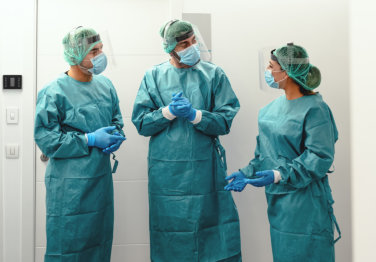
Central Sterile Processing Technician
The Sterile Processing Technician program at Medical Training Institute is designed to provide students with entry-level training that will prepare them to function in the sterile processing and distribution areas of health care facilities. The program provides students with knowledge of surgical instruments, microbiology, medical equipment, surgical terminology, and storage and distribution, as well as the skills required for sterilization and decontamination.
- Preparing, processing, issuing surgery equipment and checking if they function correctly
- Regularly conducting inspections for deficiencies in instruments
- Keeping records of sterilization
- Performing assembly, maintenance, as well as testing and monitoring sterilization machines
- Cleaning material after surgery by hand before sterilization
The 800 clock hours of Sterile Processing Technician consist of 200 hours of Didactic, 200 hours of Lab, and 400 Clinical Rotation Hours.- Sterile Processing Technicians can work in a variety of environments:
- Hospitals
- Postsecondary education institutes
- Doctors’ offices
- Dentists’ offices
- Outpatient care centers
- Preparation for International Association of Healthcare Central Service Material Management (IAHCSMM) Certification Examinations
- Certified Registered Central Service Technician (CRCST) credential
- Preparation for NBSTSA Certification Examinations
- National Board of Surgical Technology and Surgical Assisting (NBSTSA)
- MTI of New York will prepare you for your CRCST Examination by covering the following content areas:
- Cleaning, Decontamination & Disinfection
- Preparation & Packaging
- Sterilization Process
- Patient Care Equipment
- Sterile Storage & Inventory Management
- Documentation & Record Maintenance
- Customer Relations
- MTI Provides Job Placement Assistant
Admissions Requirement: HS diploma/GED, Entrance Examination
Winter 2025 Enrollment Open
January 21, 2025
Total hours: 800
Day, Evening, Weekend Options
Total weeks: 32-40
Hours/Weeks: 21-35
Tuition Cost: $12,650
Total Program Cost: $15,346
Certificate
Featured Programs
-

Medical AssistantFull Course
The Medical Assistant program at Medical Training Institute of New York is designed to prepare students to assist medical providers by performing basic clinical duties and administrative duties in doctor’s office, Clinics and/or medical center. The core curriculum covers a variety of subjects, including medical practice, medical law and ethics, medical communications, medical records, insurance, patient preparation, and basic laboratory procedures and tests. The courses are grouped around knowledge and skills required for administrative and clinical medical assisting. Students will study:
- Medical Practice
- EKG
- Phlebotomy
- Medical law and Ethics
- Basic laboratory procedures and tests
- Medical Records
- Insurance
The 720 clock hours of the Medical Assistant consist of 340 hours of Didactic, 120 hours of Lab, and 260 Clinical Rotation Hours.
Admission Requirement: High school diploma/GED
-
Clinical Medical Assistant
-
Medical Terminology
-
Phlebotomy
-
EKG- Electrocardiography
-
Basic laboratory procedures and tests
-
Patient Preparation
-
Medical Practice
-
Clinical Procedures
-
Patient Preparation
-
-
Administrative Medical Assistant
-
Medical Office Administration
-
Medical Practice
-
Pharmacology
-
Medical Records
-
Insurance
-
Health Records, Coding, and Reimbursement
-
-
Preparation for National Certification Exam
-
Registered Medical Assistant (RMA) examination
-
Certified Clinical Medical Assistant
-
Certified Phlebotomy Technician
-
Certified EKG Technician
-
Patient Care Technician
-
Certified Administrative Technician
-
-
MTI Provides Job Placement Assistant
Admissions Requirement: Must have GED/High School Diploma
Winter 2025 Enrollment Open
January 21, 2025
Total hours: 720
Day, Evening, Weekend Options
Total weeks: 29-45
Hours/Weeks: 21-35
Tuition Cost: $8,250
Total Program Cost: $10,918
Certificate
-
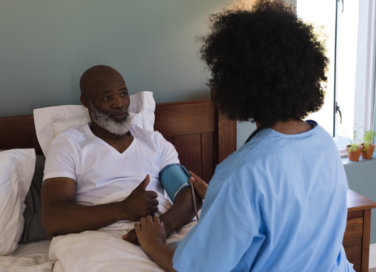
Clinical Medical AssistantClinical
The Clinical Medical Assistant program at Medical Training Institute of New York is designed to prepare students to assist medical providers by performing basic clinical duties in doctor’s office, Clinics and/or medical center.
The core curriculum covers a variety of subjects, including EKG, Phlebotomy, medical practice, medical law and ethics, patient preparation, and basic laboratory procedures and tests. The courses are grouped around knowledge and skills required for clinical medical assisting. Students will study:- Medical Terminology
- Phlebotomy
- EKG- Electrocardiography
- Basic laboratory procedures and tests
- Patient Preparation
- Medical Practice
- Clinical Procedures
- Patient Preparation
The 450 clock hours of the Clinical Medical Assistant consist of 270 hours of Didactic, 80 hours of Lab, and 120 Clinical Rotation Hours.
Admission Requirement: High school diploma/GED
-
Clinical Skills
-
Phlebotomy
-
EKG
-
Basic laboratory procedures and tests
-
Patient Preparation
-
Clinical Procedures
-
Hematology
-
Medical Laboratory Procedures
-
-
Preparation for National Certification Exam
-
Certified Clinical Medical Assistant
-
Certified Phlebotomy Technician
-
Certified EKG Technician
-
Patient Care Technician
-
-
MTI Provides Job Placement Assistant
Admissions Requirement: Must have GED/High School Diploma
Winter 2025 Enrollment Open
January 21, 2025
Total hours: 450
Day, Evening, Weekend Options
Total weeks: 18-28
Hours/Weeks: 21-35
Tuition Cost: $3,950
Total Program Cost: $5,912
Certificate
-

Administrative Medical AssistantAdministrative
The Administrative Medical Assistant program at Medical Training Institute of New York is designed to prepare students to assist medical providers by performing administrative duties in doctor’s office, Clinics and/or medical center.
The core curriculum covers a variety of subjects, including, medical practice, medical law and ethics, patient preparation, and basic laboratory procedures and tests. The courses are grouped around knowledge and skills required for clinical medical assisting. Students will study:- Medical Office Administration
- Medical Practice
- Medical Law and Ethics
- Anatomy and Physiology
- Medical Records
- Insurance
- Health Records, Coding, and Reimbursement
The 450 clock hours of the Administrative Medical Assistant consist of 270 hours of Didactic, 80 hours of Lab, and 120 Clinical Rotation Hours.
Admission Requirement: High school diploma/GED
-
Administrative/Office Skills
-
Medical Office Administration
-
Medical Practice
-
Pharmacology
-
Medical Records
-
Insurance
-
Health Records, Coding, and Reimbursement
-
-
Preparation for National Certification Exam
-
Certified Administrative Medical Assistant (CAMA) examination
-
Registered Medical Administrative Specialist (CMAS) examination
-
-
MTI Provides Job Placement Assistant
Admissions Requirement: Must have GED/High School Diploma
Winter 2025 Enrollment Open
January 21, 2025
Total hours: 450
Day, Evening, Weekend Options
Total weeks: 18-28
Hours/Weeks: 21-35
Tuition Cost: $3,950
Total Program Cost: $5,848
Certificate
Featured Programs
-

Pharmacy Technician I Entry Level
The Pharmacy Technician I Program at Medical Training Institute of New York provides students with the technical and practical training necessary for work as an entry-level assistant to a licensed pharmacist. Students will study pharmacy computing, medication preparation, inventory and billing, and quality customer service care. The Pharmacy Technician I Program seeks to prepare students to work under the supervision of a licensed pharmacist in the preparation and dispensing of medications, keeping patient records, setting up, packaging, and labeling routine orders from the medication shelves.
The lecture component consists of 200 hours of didactics, 70 hours of community Practice (Retail Pharmacy) Lab Skills, and 130 hours of Internship.
-
Community Practice, Pharmacy Records, and Inventory Management
-
Over-the-Counter Drugs
-
Pharmacy Law and Ethics
-
Pharmacology
-
Pharmacy Technology
-
Pharmacy Calculations
-
Communication Skills for Pharmacy Practice
-
IV Admixture and Aseptic Technique
-
Advanced Insurance Billing
-
Pharmacy Technician Role in Drug Utilization Review
-
-
Preparation for National Certification Exam
-
PTCB
-
New York State Pharmacy Technician License
-
Admissions Requirement: Must have GED/High School Diploma
Winter 2025 Enrollment Open
January 21, 2025
Total hours: 400
Day, Evening, Weekend Options
Total weeks: 16-25
Hours/Weeks: 21-35
Tuition Cost: $2,800
Total Program Cost: $3,945
Certificate
-
-

Pharmacy Technician IIIV Pharmacy Technician
The Pharmacy Technician I Program at Medical Training Institute of New York provides students with the technical and practical training necessary for work as an IV Technician assistant to a licensed pharmacist. Students will study pharmacy sterile compounding, intravenous (IV) preparation. The program seeks to prepare students to work under the supervision of a licensed pharmacist in the preparation and dispensing of medications to Pyxis/Omnicell machines; maintaining patient records; setting up IV Cleanroom and labeling IV Batch orders from stock supplies; and mixing drugs with parenteral fluids.
-
Pharmacy Technician I
-
All the features in Pharmacy Technician I plus Sterile Compounding Training Program
-
Full access to USP <797> standards state-of-the-art Cleanroom facility
-
Aseptic Technique
-
Intravenous-IV Compounding
-
Pyxis Training
-
Omnicell Training
The lecture component consists of 300 hours of didactics, 200 hours of Compounding Lab, and 250 hours of Internship
-
All Pharmacy Technician I
-
Sterile Compounding
-
Aseptic Technique
-
Intravenous-IV Compounding
-
TPN Compounding
-
IV Batching
-
Home Infusion
-
-
Automation
-
Pyxis Training
-
Omnicell Training
-
Robotic Systems
-
Automated prescription systems
-
Medication carts
-
-
Preparation for National Certification Exam
-
PTCB Certification
-
ASHP Certification
-
Sterile Compounding Certification Exam
-
New York State Licensure/Registration
-
Admissions Requirement: Must have GED/High School Diploma
Winter 2025 Enrollment Open
January 21, 2025
Total hours: 750
Day, Evening, Weekend Options
Total weeks: 30-47
Hours/Weeks: 21-35
Tuition Cost: $3,600
Total Program Cost: $5,176
Certificate
-
-

Advanced Pharmacy Technician IIIAdvanced
The Advanced Pharmacy Technician III Program at Medical Training Institute of New York provides students with the technical and advanced practical training necessary for work as an Advanced Pharmacy Technician assistant to a licensed pharmacist. Students will study advanced pharmacy sterile compounding, intravenous (IV) preparation, Chemotherapy compounding, Neonate/Pediatric IV Compounding.
The 1000 clock hours of the Advanced Pharmacy Technician III consist of 400 hours of Didactics, 200 hours of Lab Skills (Aseptic Technique and Sterile Compounding), 400 hours of Internship-
Sterile Compounding
-
Pulling and filling medications to Pyxis/Omnicell machines
-
Setting up IV Cleanroom
-
Labeling IV Batch orders from stock supplies
-
Aseptic Technique Training Course: This is a comprehensive introductory sterile compounding training course, which includes a review of USP Chapter <797>.
-
Students will also complete the core competencies required by current USP <797> and <800> standards in our state-of-the-art Cleanroom facility.
-
TPN Compounding
-
-
Pharmacy IT
-
Pyxis Field Technician
-
Omnicell Field Technician
-
-
Management
-
Lead Pharmacy Technician
-
Supervisory and Management Skills for Pharmacy Technicians
-
Pharmacy Technician Role in Research and Data Collection
-
-
Preparation for National Certification Exam
-
PTCB
-
Sterile Compounding Certification Exam
-
New York State Pharmacy Technician License
-
Admissions Requirement: Must have GED/High School Diploma
Winter 2025 Enrollment Open
January 21, 2025
Total hours: 1000
Day, Evening, Weekend Options
Total weeks: 40-63
Hours/Weeks: 21-35
Tuition Cost: $8,250
Total Program Cost: $10,274
Certificate
-
-

Pharmacy Sterile CompoundingAseptic Technique
The Medical Training Institute of New York provides sterile compounding training programs for Pharmacists and Pharmacy Technicians that are designed to meet current and emerging educational needs. MTINY sterile compounding training programs are based on current regulatory guidelines specified by USP <797> and USP <800> standards.
- Aseptic Technique Training Course: This is a comprehensive introductory sterile compounding training course, which includes a review of USP Chapter <797>.
- Students will also complete the core competencies required by current USP <797> standards in our state-of-the-art Cleanroom facility.
- TPN Compounding
- USP <800> standards
The lecture component consists of 100 hours of didactics, 200 hours of Compounding Lab, and 50 hours of Internship
-
Sterile Compounding
-
Aseptic Technique: USP <797> and USP <800> standards
-
Intravenous-IV Compounding
-
Cleanroom Technique
-
Chemotherapy IV Compounding
-
Narcotics IV Compounding
-
TPN Compounding
-
Neonate/Pediatric IV Compounding
-
IV Batching
-
Home Infusion
-
-
Preparation for National Certification Exam
-
Sterile Compounding Certification Exam
-
PTCB
-
ASHP Certification
-
New York State Pharmacy Technician License
-
Admissions Requirement: Must have GED/High School Diploma
Winter 2025 Enrollment Open
January 21, 2025
Total hours: 350
Day, Evening, Weekend Options
Total weeks: 18-22
Hours/Weeks: 21-35
Tuition Cost: $2,500
Total Program Cost: $3,823
Certificate
Featured Programs
-
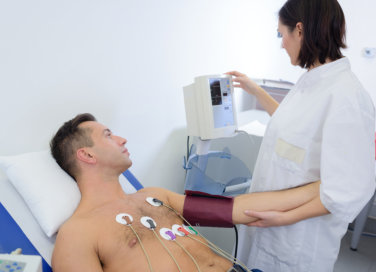
Electrocardiogram: EKG EKG Technician
The EKG Technician program at the Medical Training Institute of New York provides students with the opportunity to study electrocardiograms. The course will prepare the student for an entry-level EKG technician position. The course includes hands-on training along with certification preparation.
- Electrocardiography
- The Cardiovascular System
- The Electrocardiograph
- Performing an ECG
- Rhythm Strip Interpretation and Sinus Rhythm
- Atrial Dysrhythmias
- Junctional Dysrhythmias
- Heart Block Dysrhythmias
- Ventricular Dysrhythmias
- Pacemaker Rhythms and Bundle Branch Block
- Basic 12-Lead ECG Interpretation
- Clinical Lab
- Exam Preparation
- NHA certification exam review
- Job Placement Assistant
The 80 clock hours of the EKG Technician Program consist of 50 hours Didactic, 25 hours Clinical Lab, and Hours 5 hours NHA Exam Preparations.
Admissions Requirement: Must have GED/High School Diploma
Winter 2025 Enrollment Open
January 21, 2025
Total hours: 80
Day, Evening, Weekend Options
Total weeks: 7
Hours/Weeks: 12-15
Tuition Cost: $1,000
Total Program Cost: $1,395
Certificate
-
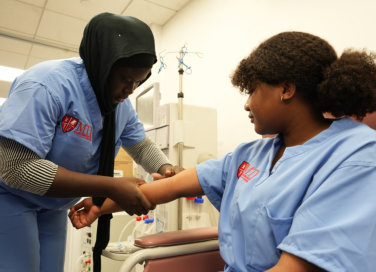
Phlebotomy Technician
The Phlebotomy Technician program at the Medical Training Institute of New York prepares students to collect blood for laboratory analysis. Phlebotomists draw blood for tests, transfusions, research, or blood donations. The Phlebotomy Technician program is designed to teach the knowledge in technical and procedural aspects of basic phlebotomy, including collection of blood specimens and venipuncture required to become a Phlebotomy technician. The Phlebotomy Technician program includes theory and hands-on instruction.
- Phlebotomy and the Health Care Setting
- Quality Assurance, Infection Control, and Safety
- Medical Terminology
- Anatomy and Physiology of the Human Body
- The Circulatory System
- Phlebotomy Equipment and Supplies
- Venipuncture Techniques – difficult collection techniques
- Finger Stick and Heel stick Techniques
- Arterial punctures
- Special Collection and Handling Techniques
- Other specimens
- Clinical Lab
- Exam Preparation
- NHA certification exam review
- Job Placement Assistant
The 80 clock hours of the Phlebotomy Technician Program consist of 50 hours Didactic, 25 hours Clinical Lab, and Hours 5 hours NHA Exam Preparations.
Admissions Requirement: Must have GED/High School Diploma
Winter 2025 Enrollment Open
January 21, 2025
Total hours: 80
Day, Evening, Weekend Options
Total weeks: 7
Hours/Weeks: 12-15
Tuition Cost: $1,000
Total Program Cost: $1,457
Certificate
-
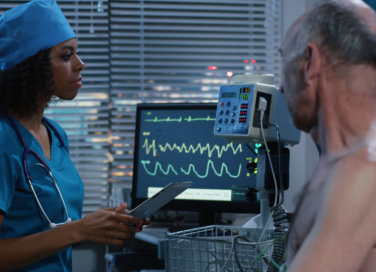
EKG & Phlebotomy TechnicianEKG + Phlebotomy
EKG & Phlebotomy Technician Combination Program at the Medical Training Institute of New York provides students with an introduction to the theory, techniques, and roles of a phlebotomist and electrocardiogram (EKG) technician. Students learn phlebotomy skills, including skin puncture, venipuncture, blood collection, and the cardiovascular system as it relates to the performance of an EKG. Students gain knowledge in basic EKG tracing, rate, rhythm, common heart abnormalities, and the use and function of the EKG machine.
- Quality Assurance, Infection Control, and Safety
- Medical Terminology
- Anatomy and Physiology of the Human Body
- The Circulatory System
- Phlebotomy Equipment and Supplies
- Venipuncture Techniques – difficult collection techniques
- Finger Stick and Heel stick Techniques
- Electrocardiography
- The Cardiovascular System
- Basic 12-Lead ECG Interpretation
- Performing an ECG
- Clinical Lab
- Exam Preparation
- NHA certification exam review
- Job Placement Assistant
The 120 clock hours of the EKG & Phlebotomy Technician Program consist of 75 hours Didactic, 40 hours Simulation Lab, and 5 hours NHA Exam Preparations.
Admissions Requirement: Must have GED/High School Diploma
Winter 2025 Enrollment Open
January 21, 2025
Total hours: 120
Day, Evening, Weekend Options
Total weeks: 80
Hours/Weeks: 12-15
Tuition Cost: $1,650
Total Program Cost: $2,636
Certificate
Featured Programs
-

Medical Billing & Coding
BillingThe Medical Billing and Coding Program at Medical Training Institute of New York is designed to prepare students for careers in a variety of healthcare settings, including medical offices, hospitals, clinics, and skilled-care facilities. The curriculum is structured to include didactic instruction in several areas, including, but not limited to, billing practices and systems, coding and reimbursement systems, data abstracting, health record maintenance, and healthcare computer applications. The final portion of curriculum includes a supervised clinical externship at a medical facility. Students will study
- Healthcare Systems
- Medical Office Accounting
- CPT-4 Coding Principles
- ICD-10-CM Coding Principles
- Medical Terminology
- Anatomy and Physiology
- Medical Billing and Coding Externship
Admission Requirement: High school diploma/GED
- Billing
- Role of an Insurance Billing Specialist
- Privacy, Security, and HIPAA
- Compliance, Fraud, and Abuse
- Health Insurance
- Basics of Health Insurance
- Medicare and Medicaid
- TRICARE and Veterans’ Health Care
- Workers’ Compensation
- Disability Income Insurance and Disability Benefit Programs
- Coding
- Medical Documentation and the Electronic Health Record
- Diagnostic Coding
- Procedural Coding
- Reimbursement
- The Paper Claim CMS-1500
- The Electronic Claim
- Receiving Payments and Insurance Problem Solving
- Collection Strategies
- Preparation for National Certification Exam
- Certified Professional Biller examination offered by the American Association of Professional Coders
Admissions Requirement: Must have GED/High School Diploma
Winter 2025 Enrollment Open
January 21, 2025
Total hours: 600
Day, Evening, Weekend Options
Total weeks: 25-38
Hours/Weeks: 21-35
Tuition Cost: $2,500
Total Program Cost: $3,707
Certificate
-

Medical Coding Specialist
CodingThe Medical Coding Specialist Program at Medical Training Institute of New York is designed to prepare students for careers in a variety of healthcare settings, including medical offices, hospitals, clinics, and skilled-care facilities.
The medical coding profession remains diverse, with career opportunities in many outpatient and inpatient facilities. There are career opportunities with health care facilities, third-party payers, and private physician settings, as well as self-employed medical coders. Although self-employment as a coding professional in private practice remains a viable option, many more employment opportunities exist. Students will study:
- Basics of Reimbursement
- Foundation of Terminology
- Anatomy & Physiology
- Pathophysiology
- CPT/HCPCS Coding
- ICD Coding/ ICD-10-CM Coding Principle
The 600 clock hours of the Medical Billing & Coding consist of 300 hours of Didactic, 150 hours of Lab, 150 hours of Internship.
Admission Requirement: High school diploma/GED
- Basic
- Basics of Writing
- Basic Math
- Comprehension Building/Study Skills
- Anatomy and Physiology
- Introduction to Computers
- Coding Principles
- Medical Terminology
- CPT/HCPCS
- ICD Coding
- Medical Billing/Insurance
- Pathophysiology
- Preparation for National Certification Exam
- Certification Review
- MTI Provides Job Placement Assistant
Admissions Requirement: Must have GED/High School Diploma
Winter 2025 Enrollment Open
January 21, 2025
Total hours: 650
Day, Evening, Weekend Options
Total weeks: 26-41
Hours/Weeks: 21-35
Tuition Cost: 3,700
Total Program Cost: 4,987
Certificate
-

Advanced Medical Coding Specialist & Auditing
Advanced Coding & AuditingAdvanced Medical Coding and Auditing requires the student to apply previously learned coding in CPT, HCPCS, and ICD-10-CM concepts to a wide array of medical reports. The student is presented with more in-depth coding information on a topic, such as coding pacemaker implantation, and then the student applies the knowledge by assigning CPT, HCPCS, and ICD-10-CM codes to the services and procedures from an original source document. The student uses an audit form and assigns the correct level of E/M services based on documentation.
- All Features in Medical Coding Specialist
- Medical Terminology
- CPT/HCPCS
- ICD Coding
- Medical Billing/Insurance
- Pathophysiology
The 600 clock hours of the Advanced Medical Coding Specialist consist of 450 hours of Didactic, 150 hours of Lab, 150 hours of Internship.
Admission Requirement: High school diploma/GED
- The students will apply CPT, HCPCS, and ICD-10-CM codes to a wide variety of subspecialty areas:
- Evaluation and Management Services
- Medicine
- Radiology
- Pathology and Laboratory
- Integumentary System
- Cardiovascular System
- Digestive System, Hemic/Lymphatic System, and Mediastinum/Diaphragm
- Musculoskeletal System
- Respiratory System
- Urinary, Male Genital, and Endocrine Systems
- Female Genital System and Maternity Care/Delivery
- Nervous System
- Eye and Auditory Systems
- Anesthesia
- Auditing Review reports
- Preparation for National Certification Exam
- Certification Review
- MTI Provides Job Placement Assistant
Admissions Requirement: Must have GED/High School Diploma
Winter 2025 Enrollment Open
January 21, 2025
Total hours: 770
Day, Evening, Weekend Options
Total weeks: 31-48
Hours/Weeks: 21-35
Tuition Cost: $6,700
Total Program Cost: $8,767
Certificate
Featured Programs
-
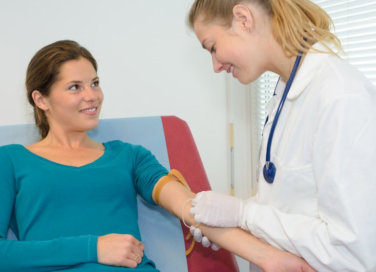
Patient Care TechnicianPCT
Patient Care Technician Program at the Medical Training Institute of New York prepares the student to work in a hospital, Assisted living, or long-term care environment under the direct supervision of a licensed nurse. This course introduces students to the theory, techniques, and roles of a phlebotomist and electrocardiogram (EKG) technician. If the student already holds a Certified Nurse Assistant certificate, The student only has to take EKG and Phlebotomy and Clinical Lab Skills to become a patient Care Technician.
- Quality Assurance, Infection Control, and Safety
- Medical Terminology
- Anatomy and Physiology of the Human Body
- The Circulatory System
- Phlebotomy Equipment and Supplies
- Venipuncture Techniques – complex collection techniques
- Finger Stick and Heel stick Techniques
- Electrocardiography
- The Cardiovascular System
- Basic 12-Lead ECG Interpretation
- Performing an ECG
- Clinical Lab
- Exam Preparation
- NHA certification exam review:
- Certified Patient Care Technician
- Certified EKG Technician
- Certified Phlebotomy Technician
- Job Placement Assistant
The 160 clock hours of the Patient Care Technician Program consist of 100 hours Didactic, 50 hours Simulation Lab, and 10 hours NHA Exam Preparations.
Admissions Requirement: Must have GED/High School Diploma
Winter 2025 Enrollment Open
January 21, 2025
Total hours: 160
Day, Evening, Weekend Options
Total weeks: 10-13
Hours/Weeks: 12-15
Tuition Cost: $2,200
Total Program Cost: $3,436
Certificate
-

Patient Care SpecialistPCS
The Patient Care Specialist Program at the Medical Training Institute of New York is designed to prepare students to assist medical providers by performing administrative and essential clinical duties in an office and medical center. The core curriculum covers a variety of disciplines, including dialysis, certified nurse assistant, phlebotomy, and patient care technician. This course prepares the student to work in a hospital, assisted living, or long-term care environment under the direct supervision of a licensed nurse. Courses under Patient Care Specialist Program:
- Principles of dialysis
- Fluid and electrolyte balance
- Hematologic aspects
- Dialysis systems and equipment
- Certified Nurse Assistant
- Basic Nursing Skills
- Personal Care Skills
- Internship in an RHCF: 30 hours
- Phlebotomy
- The Circulatory System
- Venipuncture Techniques
- Finger Stick and Heel stick Techniques
- Electrocardiogram -EKG
- The Cardiovascular System
- Electrocardiography
- Basic 12-Lead ECG Interpretation
- Performing an ECG
- Exam Preparation
- BONENT certification exam review
- Certified Hemodialysis Technician/Technologist (CHT)
- NHA certification exam review:
- Certified Patient Care Technician
- Certified EKG Technician
- Certified Phlebotomy Technician
- Job Placement Assistant
The 750 clock hours of the Patient Care Specialist Program consist of 520 hours of Didactic, 200 hours of Lab, and 30 hours of Internship.
Admissions Requirement: Must have GED/High School Diploma
Winter 2025 Enrollment Open
January 21, 2025
Total hours: 750
Day, Evening, Weekend Options
Total weeks: 30-47
Hours/Weeks: 21-35
Tuition Cost: $6,700
Total Program Cost: $8,457
Certificate
Featured Programs
-
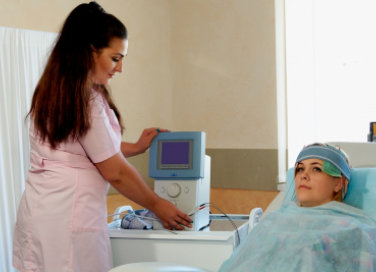
Nursing Assistant (CNA)
A Nursing Assistant (CNA) provides direct care to patients in nursing homes and clinics or extended-care facilities. CNA’s responsibilities include feeding and bathing patients and specimen collection. A CNA also participates in rehabilitation and therapy programs under the supervision of a Registered nurse. Students train during the program, often working in a hospital or nursing home setting.
Nursing Assistant is responsible for supporting medical staff in administering care to patients with various injuries, illnesses, or disabilities. Their duties include:
- Mobility needs
- Psychological needs of the resident
- Communication in health care facilities
- Personal care needs
- Resident unit and equipment
- Nutritional needs
- Measuring and recording fluid and food intake
- Elimination needs
The 125 clock hours of Nursing Assistant consist of 85 hours Didactic, 10 hours Lab 30 hours of Internship.
- Basics of Being a RCHF Nurse Assistant
- Basic Nursing Skills
- Personal Care Skills
- Mental Health and Social Service Need
- Job Placement Assistant
Admissions Requirement: Must have GED/High School Diploma
Winter 2025 Enrollment Open
January 21, 2025
Total hours: 125
Day, Evening, Weekend Options
Total weeks: 6-8
Hours/Weeks: 16-25
Tuition Cost: $1,400
Total Program Cost: $1,995
Apply NowCertificate
-

Nursing Assistant Advanced (CNA Advanced)
Nurse Assistant Advanced prepares students to work in an advanced care setting. A Nursing Assistant advanced is a Certified Nursing Assistant (CNA) who has received specialized training to perform more complex patient care skills such as phlebotomy, point of care testing, bladder scans, EKGs, catheter removal, and assisting licensed nursing personnel in sterile technique situations. The CNA Advanced program includes the following courses:
The nurse Assistant Advanced Program at the Medical Training Institute of New York provides students with the technical and skill training necessary for work as an entry-level assistant to a Registered Nurse. Students will study:
- All Features in Certified Nurse Assistant Plus
- Introduction to EKG
- Phlebotomist
- Monitoring vitals
The 240 clock hours of the Certified Nurse Assistant Advanced Day Program consist of 180 hours Didactic, 30 hours Lab, and 30 Internship Hours.
- CNA
- Basic Nursing Skills
- Personal Care Skills
- EKG
- Introduction to EKG
- EKG Practice on Mannequin
- EKG Live Practice
- Phlebotomy
- Conducting the blood draw
- Blood Collection Equipment
- Venipuncture Procedures
- Job Placement Assistant
Admissions Requirement: Must have GED/High School Diploma
Winter 2025 Enrollment Open
January 21, 2025
Total hours: 240
Day, Evening, Weekend Options
Total weeks: 12-15
Hours/Weeks: 16-25
Tuition Cost: $3,500
Total Program Cost: $4,665
Apply NowCertificate
Program Coming Soon: SPRING 2025
-
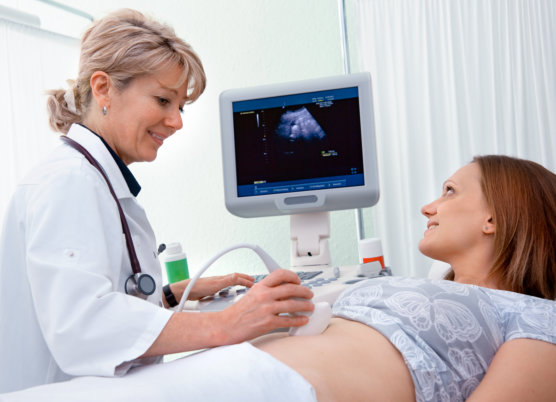
Diagnostic Medical Sonography (Ultrasound)
-
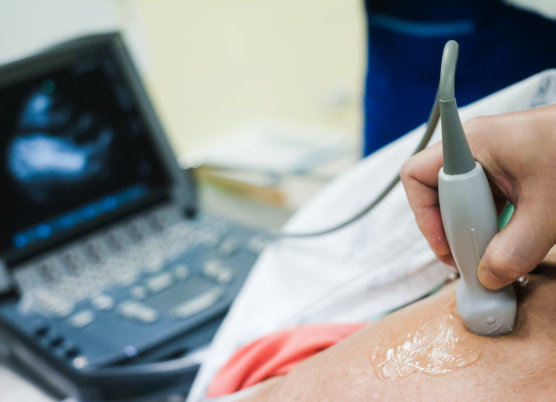
Cardiovascular Sonography Technology
-
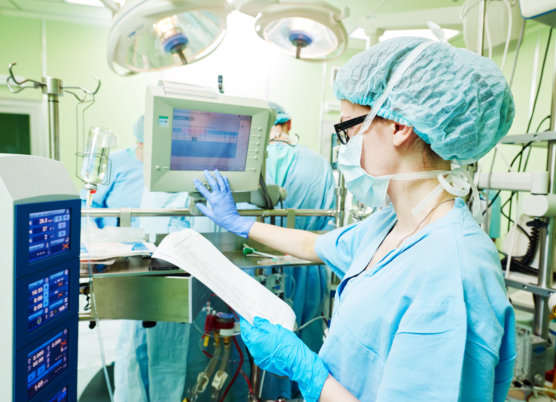
Surgical Technologist
-

Central Sterile Processing Technician
-

Pharmacy Technician I
-
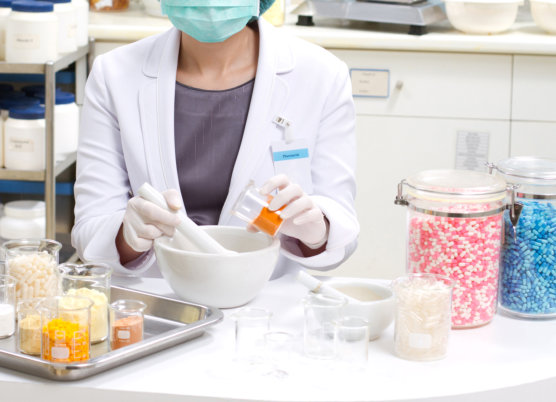
Pharmacy Technician II (Pharmacy Technician Compounding)
-
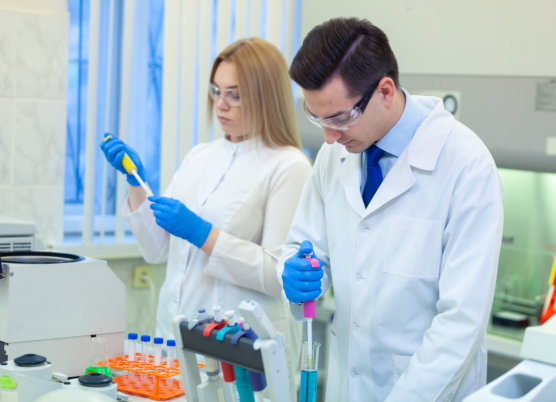
Advanced Pharmacy Technician III
-

Pharmacy Sterile Compounding
-

Medical Assistant – Full course
-

Clinical Medical Assistant
-

Administrative Medical Assistant
-

Medical Billing & Coding
-

Medical Coding Specialist
-

Advanced Medical Coding Specialist & Auditing
-

Certified Nurse Assistant
-

Certified Nurse Assistant Advanced
-

Patient Care Technician
-

Patient Care Specialist
-
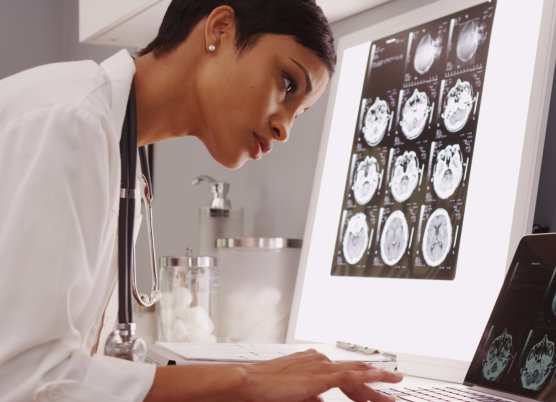
Dialysis Technician
-
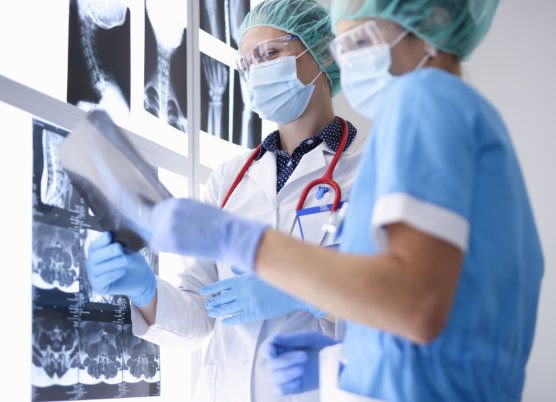
Electrocardiogram: EKG
-
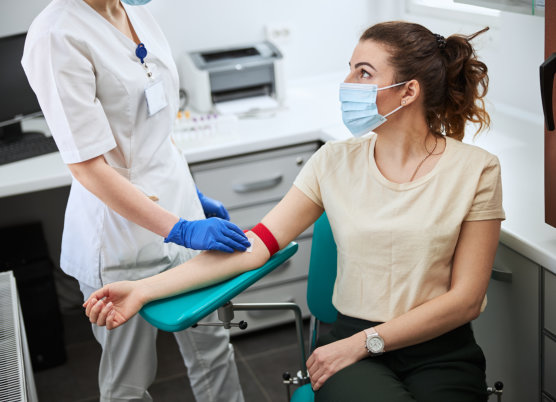
Phlebotomy Technician
-
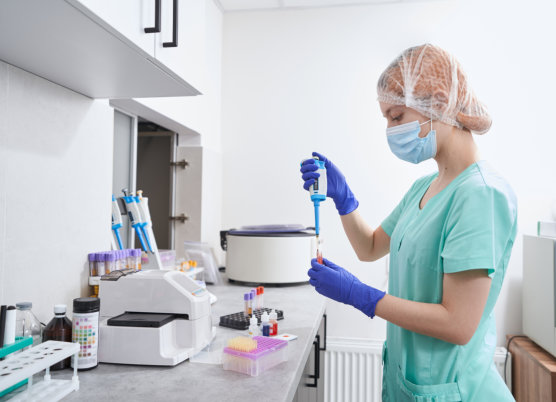
EKG & Phlebotomy Technician
-
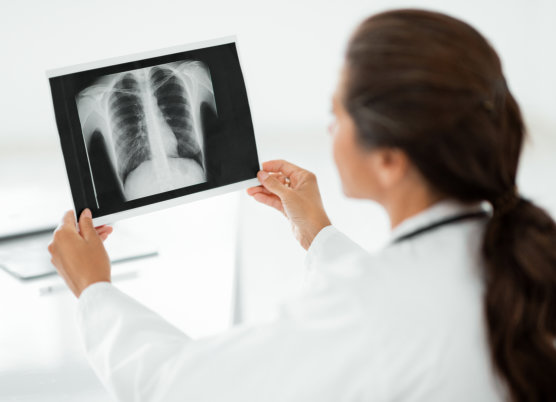
Radiography Technology
-

Radiation Technology




